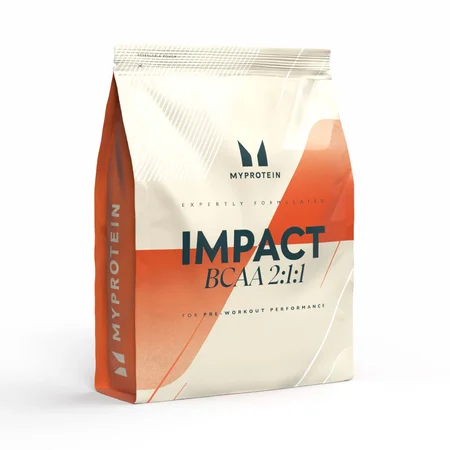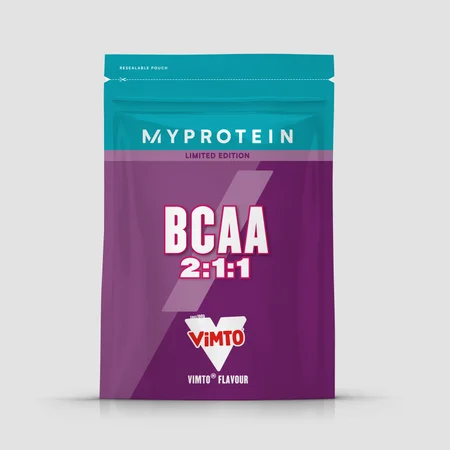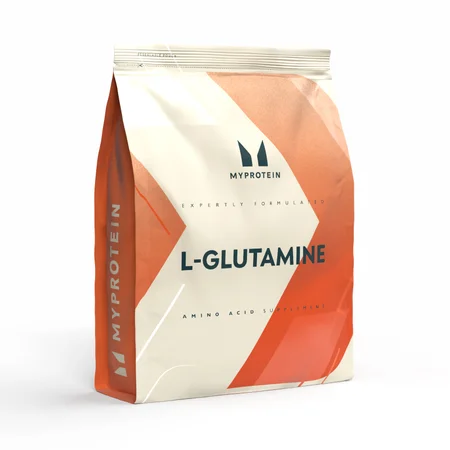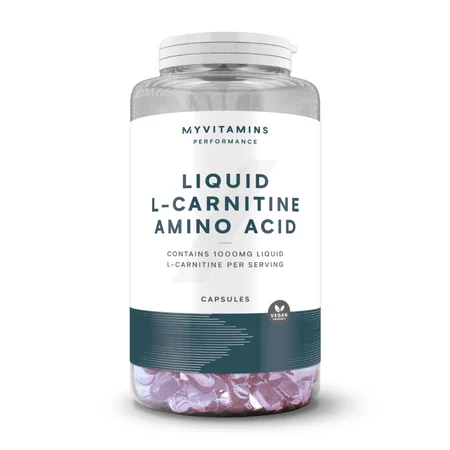
Amino acids act as building blocks. They’re the specific forms of protein which our bodies use for growth and repair — making them popular when building muscle. They’re also used to create hormones and neurotransmitters that send messages throughout our bodies. For this reason, people take amino acid supplements to enhance their athletic performance naturally but also balance or improve their mood.
There are different types of amino acids which have different properties and are found from different sources. These are: essential, conditionally essential, and non-essential amino acids.
The question is – how essential are they really when it comes to building muscle?
- What are amino acids?
- Essential amino acids
- Conditionally-essential amino acids
- Non-essential amino acids
- Why you should take amino acid supplements
- Benefits of amino acid supplements
- Different amino acid supplements
- FAQs
What are amino acids and why are they important?
Amino acids are the building blocks of protein. There are 20 amino acids that make up the proteins found in the human body and they all have important roles.
They can be classified as essential, conditionally essential or non-essential.
What are essential amino acids?
Essential amino acids can’t be produced within the body in the amount we need them, so they must be consumed from dietary sources — food or supplements.
There are nine essential amino acids, and these are:
Leucine: used for protein synthesis, growth, and repair (1) Isoleucine: used for wound healing, hormone synthesis, and plays a role in immune function (2) Lysine: important for tissue growth and repair (3) Methionine: involved in regulating metabolic processes, the innate immune system and digestive processes (4,5) Phenylalanine: helps to create other amino acids and is involved in the production of certain neurotransmitters that are essential for brain and nervous system functioning (6,7.) Threonine: helps to support the function of the nervous system as well as fat metabolism (8) Tryptophan: helps to regulate appetite, mood, sleep cycles, and pain in the body (9) Valine: a branched chain amino acid (BAA) that supports muscle growth and repair (10) Histidine: this is essential for children, but adults generally produce adequate amounts. Histidine is important for the production of hormones and enzymes (11).
Conditionally essential amino acids
Conditionally essential amino acids are not essential except in times of illness or stress.
Arginine: supports healthy circulation and oxygenation of the body (12) Cysteine: supports protein synthesis and other metabolic functions (13) Glutamine: is the most abundant amino acid found in the body and supports protein synthesis (14) Tyrosine: can be made from phenylalanine; is essential for producing neurotransmitters, which are chemicals involved in brain function (15) Glycine: important for the growth and repair of cells and protein synthesis (16) Ornithine: supports the regulation of several important metabolic processes (17) Proline: made from glutamine, supports protein growth, repair, and helps the immune system (18)
Non-essential amino acids
Non-essential amino acids can be produced within your body and you don’t need to get them from food.
Alanine: key for metabolism and providing energy for our muscles and brain (19) Aspartate: supports creation of other amino acids as well as proteins and hormones (20) Taurine: helps support heart and brain health and acts as an antioxidant (21)
Why you should take amino acid supplements
Certain amino acids can be harder to obtain, especially essential amino acids.
As different amino acids play important roles within the body, not getting adequate amounts of them can have an impact on health and performance.
For example, the essential amino acid leucine is particularly important for muscle growth and repair, with evidence highlighting that 3-4g of leucine is required to maximally stimulate muscle protein synthesis (22).
Foods that contain all essential amino acids are considered “complete” protein sources, and these are usually animal based foods such as meat, poultry, eggs and dairy products.
However, plant-based protein foods are typically considered ‘incomplete’, meaning that they are low or lacking an essential amino acid.
This can make it harder to get enough of the important amino acids.
In fact, plant-based proteins can lead to a lower rate of muscle repair and growth in comparison to the same amount of protein from animal sources (23 ).
You don’t have to be vegan or vegetarian to struggle with obtaining enough essential amino acids. It can be hard to consume animal products both regularly and in adequate quantities.
Not to mention the general movement towards reducing meat intake for environmental reasons.
As essential amino acids cannot be created in the body, a supplement may be necessary if you’re not getting enough from your diet.
Benefits of amino acid supplements
Aid the rate of protein synthesis
Branched chain amino acids, known as BCAAs, are a specific group of amino acids.
Leucine, isoleucine and valine are the three BCAAs, and their unique structure is what gives this group the name ‘branched chain’.
Leucine, isoleucine and valine are considered the most anabolic of the nine essential amino acids (24), which means they promote muscle building.
BCAAs account for over one third of the protein in the body’s muscles (25).
When it comes to muscle building, the rate of muscle protein synthesis needs to be higher than the rate of muscle protein breakdown.
A BCAA supplement may help to increase overall intake of amino acids, which can in turn promote this muscle growth.
One study found a 22% greater increase in muscle protein synthesis with BCAA supplementation in comparison to a placebo (26).
Reduce protein and muscle breakdown
Consumption of protein prior to or during a workout can increase the amount of amino acids in the amino acid pool within the muscles, which can help to reduce the amount of muscle protein breakdown throughout a session.
BCAAs have been shown to reduce muscle protein breakdown, especially when an individual is in a calorie deficit.
A recent study demonstrated BCAA supplementation in individuals who resistance trained and were in a calorie deficit helped to preserve lean muscle mass and performance while fat mass reduced (27).
Similar results were seen in another study which investigated the impact of BCAA supplementation in wrestlers in a calorie deficit (28).
Reduce tiredness
It has been suggested that BCAA supplementation can reduce muscle soreness, which in turn can delay the perception of fatigue and time to exhaustion during training (29).
Other studies found increased BCAA levels in the bloodstream can influence the levels of neurotransmitters within the brain, which can reduce the production of serotonin. This then plays a role in fatigue during exercise (30, 31).
Reduce muscle soreness post-workout
As BCAAs can promote muscle growth and repair, it’s thought they can help reduce delayed onset muscle soreness, or DOMS.
A recent meta-analysis of studies identified that seven out of 10 studies demonstrated a reduction in DOMS in trained individuals (32).
However, their efficacy depends on a variety of factors and among these studies dosage and circumstances varied.
BCAA supplementation can provide amino acids relatively quickly because they’re more readily absorbed than a whole food protein source that has to be digested, which could promote faster recovery and therefore decrease the likelihood of DOMS.
Different types of amino acid supplements
Amino acids can be supplemented in groups or individually.
BCAA supplements
BCAAs commonly contain L Leucine (2g), L Isoleucine (1g), L Valine (1g) per serving. This is known as the 2:1:1 ratio.
They can also be bought in a 4:1:1 ratio with 4g of L Leucine per 1g of L Isoleucine and L Valine.
EAA supplements
Another type of amino acid supplement is an essential amino acid, known as EAA.
As the name suggests, EAAs provide a concentrated source of the nine essential amino acids.
These typically contain EAAs in the following quantities: L Leucine (5g), L Valine (2.2g), L Lysine (2.2g), L Phenylalanine (1.8g), L Threonine (1.5g), L Isoleucine (890mg), L Histidine (710mg), L Methionine (500g), L Tryptophan (200mg).
L-Glutamine Powder
L-Glutamine is important for the formation of proteins and other amino acids.
There’s also some evidence L-Glutamine may support gut function, immunity and other processes (33).
It’s an amino acid the body is only able to make in small amounts, so we must get some from our diet.
Naturally found in meat, fish, and eggs, it can be helpful to supplement L-Glutamine if you don’t consume any or enough of these foods.
5g can be added to a shake or water, and it can be taken before, during or after exercise.
Beta Alanine
Beta alanine is a non-essential amino acid and is the only naturally-occurring beta amino acid.
Beta alanine is different from most amino acids, as it is not used to synthesise proteins.
Instead, it produces carnosine, which is stored in your skeletal muscles and reduces the build-up of lactic acid in your muscles during training (19).
Carnitine
Carnitine is naturally present in many foods — especially animal products — and is available as a dietary supplement.
Carnitine is also synthesised in the body from the amino acids lysine and methionine [34, 35]
This Acetyl L Carnitine supplement is a convenient way of increasing the levels of this amino acid in your body, which is associated with benefits such as decreased inflammation [36], preserving muscle glycogen and it spares the use of amino acids as energy sources during exercise, making them potentially available for new protein synthesis [37], and decreases the accumulation of lactate [38.]
FAQs about amino acids
Who are amino acid supplements suitable for?
Everyone requires adequate amounts of amino acids. Supplements can be useful for certain conditions and for those who are active.
If you have concerns regarding whether you should take an amino acid supplement, seek support from your healthcare provider or a registered dietitian, nutritionist or sports dietitian.
When should you take amino acids?
Taking amino acid supplements before or after exercise are two great opportunities to boost protein synthesis, support muscle protein synthesis, reduce muscle protein breakdown, and potentially reduce occurrences of DOMS.
You can also take amino acid supplements throughout the day.
It’s recommended that protein and amino acid intake is spread throughout the day as the body is in a constant state of muscle protein breakdown and repair.
Can you take amino acids every day?
Yes. Protein is the one macronutrient that we cannot store in the body (39, 40) which emphasises the importance of getting adequate amounts of it each day.
A supplement can help to ensure you get adequate amounts of protein and the array of amino acids you need.
Excess amino acids are degraded, with the amino group being excreted and the amino group can be used directly for energy or stored as carbohydrate or fat (41).
What foods are high in amino acids?
Because amino acids are the foundation of protein, foods high in protein will provide an array of amino acids.
Animal products are usually higher in both the levels and variety of amino acids in comparison to plant-based protein sources.
Is amino acid a protein?
Proteins are made of long chains of amino acids, so while they are the foundation of proteins they aren’t protein themselves.
It’s a bit like building a house - bricks are the foundation, but bricks in isolation are not a house.
While the quantity of protein consumed is important for many reasons, quality shouldn’t be underestimated, i.e. the specific amino acids provided by that protein.
Should you take amino acids before or after exercise?
There isn’t a bad time to take amino acids as the body is in a constant flux of muscle breakdown and repair.
Whether before or after exercise, supplementing amino acids boosts protein synthesis and in turn supports muscle protein synthesis.
Do amino acids help you sleep?
Certain amino acids such as tryptophan play an important role in regulating sleep. A recent study found that tryptophan has been associated with increased subjective sleepiness, faster time to falling asleep, and fewer night-time awakenings (42).
Take home message
Amino acids are essential for functions within our body, and especially important for those who are active due to the increased rate of muscle protein turnover. A supplement can be beneficial, and in some cases might be essential. However, like all supplements, they are not a miracle cure and the diet and lifestyle as a whole should be considered before supplementing.











